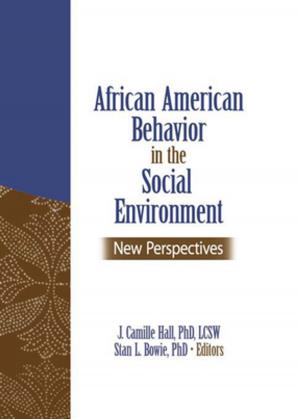Cranfield on Corporate Sustainability
Business & Finance, Business Reference, Business Ethics, Management & Leadership, Motivational| Author: | David Grayson | ISBN: | 9781351277464 |
| Publisher: | Taylor and Francis | Publication: | September 8, 2017 |
| Imprint: | Routledge | Language: | English |
| Author: | David Grayson |
| ISBN: | 9781351277464 |
| Publisher: | Taylor and Francis |
| Publication: | September 8, 2017 |
| Imprint: | Routledge |
| Language: | English |
Business schools have a special contribution to make in developing globally responsible, critical and independent-thinking future leaders and managers. In fact, the Cranfield School of Management acknowledges this as one of its important responsibilities. Its core ideology is to transform the practice of learning and create leaders who action their knowledge and become stewards of the common good. Such thinking forms the basis of this book and its theme of developing responsible and ethical leaders for next-generation enterprises. These leaders will be passionate, purposeful and responsible; their primary aim will be to make a difference in the lives of people and create sustainable value premised on sound ethical values. This book aims to provide a roadmap both for business students – the leaders of tomorrow – and for existing and engaged leaders who need support, coaching and counselling to address the challenges of the sustainability agenda.
With contributions from more than thirty Cranfield faculty and associates across multiple management disciplines, the book emphasizes the need for cross-disciplinarity when confronting sustainability dilemmas. Many corporate responsibility practitioners find themselves isolated from core business issues. Conversely, many managers in traditional departments have little or no knowledge of what sustainability and corporate responsibility means to their day-to-day role. Today, there is an urgent need for learning, for conversation and for sustainability to become embedded throughout an organization's DNA.
Cranfield strives to prepare its students for a work milieu that is increasingly complex, diverse, technologically interconnected, socially networked and where economic and political power shifts see emerging-market economies assuming significant global prominence. This makes for exciting challenges but also requires new mind-sets for the next generation of business men and women. Corporate responsibility, and the tough ethical and governance choices managers have to grapple with, where there are no easy answers, means that business education must embrace the stakeholder model. Leaders need to be able to negotiate their way with confidence around multiple perspectives and conflicting and common interests of stakeholders such as employees and managers, shareholders, trade unions, suppliers and civil society organisations. Business schools need to generate understanding of and sensitivity to this new and changing world of work. Today, the challenge for business schools and business itself is to establish a new maxim: "the business of business is sustainable business".
Cranfield on Corporate Sustainability is designed to stimulate debate about what sustainable development means for business and, therefore, on what business schools across the globe should research, teach and advise.
This unique book is a manifesto for a new holistic, embedded approach to corporate sustainability management education.
Business schools have a special contribution to make in developing globally responsible, critical and independent-thinking future leaders and managers. In fact, the Cranfield School of Management acknowledges this as one of its important responsibilities. Its core ideology is to transform the practice of learning and create leaders who action their knowledge and become stewards of the common good. Such thinking forms the basis of this book and its theme of developing responsible and ethical leaders for next-generation enterprises. These leaders will be passionate, purposeful and responsible; their primary aim will be to make a difference in the lives of people and create sustainable value premised on sound ethical values. This book aims to provide a roadmap both for business students – the leaders of tomorrow – and for existing and engaged leaders who need support, coaching and counselling to address the challenges of the sustainability agenda.
With contributions from more than thirty Cranfield faculty and associates across multiple management disciplines, the book emphasizes the need for cross-disciplinarity when confronting sustainability dilemmas. Many corporate responsibility practitioners find themselves isolated from core business issues. Conversely, many managers in traditional departments have little or no knowledge of what sustainability and corporate responsibility means to their day-to-day role. Today, there is an urgent need for learning, for conversation and for sustainability to become embedded throughout an organization's DNA.
Cranfield strives to prepare its students for a work milieu that is increasingly complex, diverse, technologically interconnected, socially networked and where economic and political power shifts see emerging-market economies assuming significant global prominence. This makes for exciting challenges but also requires new mind-sets for the next generation of business men and women. Corporate responsibility, and the tough ethical and governance choices managers have to grapple with, where there are no easy answers, means that business education must embrace the stakeholder model. Leaders need to be able to negotiate their way with confidence around multiple perspectives and conflicting and common interests of stakeholders such as employees and managers, shareholders, trade unions, suppliers and civil society organisations. Business schools need to generate understanding of and sensitivity to this new and changing world of work. Today, the challenge for business schools and business itself is to establish a new maxim: "the business of business is sustainable business".
Cranfield on Corporate Sustainability is designed to stimulate debate about what sustainable development means for business and, therefore, on what business schools across the globe should research, teach and advise.
This unique book is a manifesto for a new holistic, embedded approach to corporate sustainability management education.















